Mini Seminars Presenters
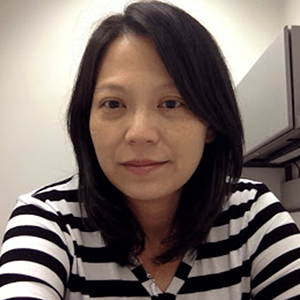
Eileen Chen
Instructional Designer, College of Engineering, San Jose State University
Eileen Chen is an Instructional Designer in the College of Engineering at San Jose State University, where she consults faculty on course redesign with technology tools and effective practices in teaching across a variety of delivery modes. She has also provided support and recommendations to Engineering Extended Studies stakeholders since 2013. She is passionate about reimagining learning and teaching, and increasing faculty expertise in instructional technology and pedagogy to enhance student learning. She received the Dean’s Service Award in the College of Engineering (2020). Here’s a link to the College of Education Instructional Design Resources.
Connecting Rubrics and Outcomes with Canvas Assignments for Mastery Learning and Specifications Grading: July 26, 2021
Using the Canvas Learning Mastery Gradebook to View Outcome Results: July 28, 2021
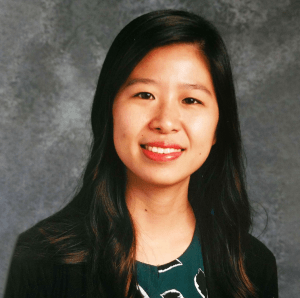
Jennifer Foung
Instructional Designer, UC Irvine
Jennifer Foung is an instructional designer at the Division of Teaching Excellence and Innovation at UC Irvine. She received her Masters in Library and Information Science at Rutgers University in 2010 and her Masters in Communication, Media & Learning Technologies Design at Columbia University in 2017. Jennifer worked as a media specialist in a Junior High School from 2010-2020. In 2017, she joined the DTEI team as an instructional designer. Jennifer has extensive experience in faculty training; particularly teaching faculty how to integrate educational technologies into their courses to engage students and encourage collaborative learning. Jennifer is an advocate of informal learning practices and believes the best type of learning occurs when students are given unstructured opportunities to think, discuss and apply. Jennifer also has experience in graphic and web design which she uses to enhance the look and feel of online courses. Jennifer values continual professional growth and is always on the lookout for innovative tools and ideas that can be used to motivate and engage learners.
Using Gradescope Rubrics and Assignments to Support Mastery Learning and Specifications Grading: August 04, 2021

Burford J. Furman
Professor of Mechanical Engineering, San Jose State University
From 1982 to 1993, Professor Furman worked in the Development Laboratory at IBM, General Products Division (later called, Storage Systems Division) in San José. He was a member of the actuator development team for the 3390 disk storage product and spindle motor design team for 3.5 inch and 2.5 inch disk drive products. He is a member of the American Society of Mechanical Engineers, the Society of Manufacturing Engineers and the American Society for Engineering Education. He is also a Registered Professional Mechanical Engineer in the State of California.
Connecting Rubrics and Outcomes with Canvas Assignments for Mastery Learning and Specifications Grading: July 26, 2021
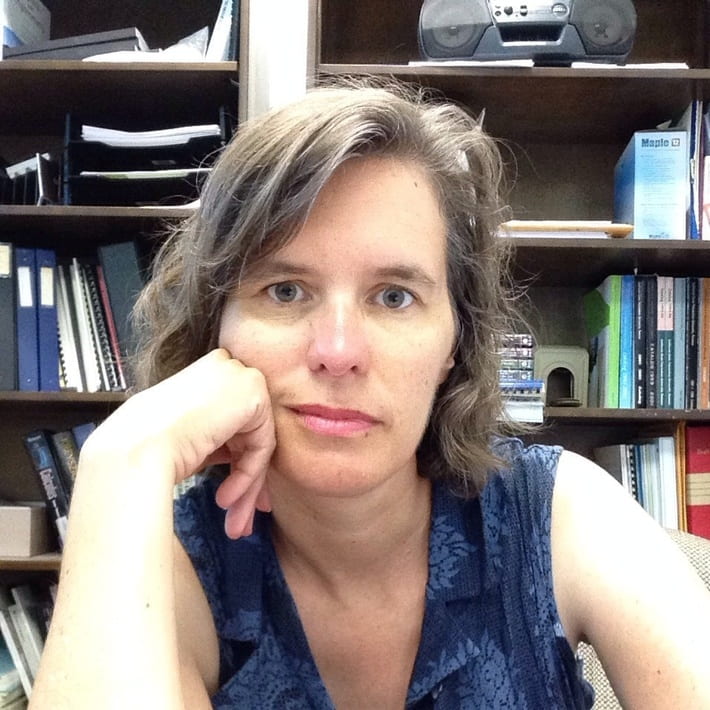
Berit Givens
Department Chair Mathematics and Statistics, Cal Poly Pomona
Berit Givens is Professor and Chair of the Department of Mathematics and Statistics at Cal Poly Pomona. She earned a PhD in logic and set-theoretic topology at the University of Wisconsin, Madison, and a BA in mathematics from Pomona College. While she was originally trained in logic, she enjoys exploring many different areas of mathematics, and she has published papers in logic, combinatorics, semigroups, Poisson geometry, and the mathematics of fiber arts. Berit is lucky to have had the opportunity to teach a wide range of courses for mathematics majors. She is a passionate educator who is always excited to add more teaching tools to her toolbox. In her spare time, she likes to hike, bicycle, knit, and spend time with her family.
Using the Canvas Learning Mastery Gradebook to View Outcome Results: July 28, 2021
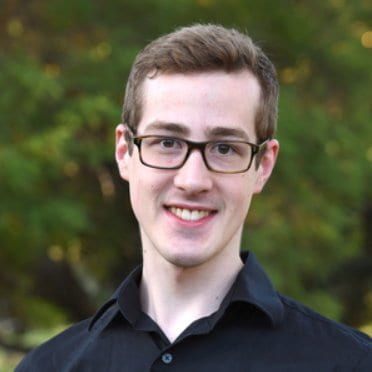
William J Howitz
Organic Chemistry Laboratory Coordinator, Georgia Institute of Technology
Dr. Will Howitz graduated from the University of California, Irvine (UCI) with his Ph.D. in chemistry in 2020. While at UCI he helped to convert the organic chemistry laboratory course series from a points-based grading system to a specifications grading system and assisted with the conversion of organic chemistry lecture and general and organic chemistry laboratory courses to online formats in response to the COVID-19 pandemic. As an instructor-of-record, he taught six courses including both lecture and laboratory courses. After graduating he was hired as the Organic Chemistry Laboratory Coordinator at the Georgia Institute of Technology where he is continuing his research on specifications grading and laboratory development.
Incorporating Elements of Mastery: Building toward Specifications Grading: April 14, 2021
Scaling up a Specifications Grading System in a Laboratory Course with Over 1,000 Students: May 12, 2021
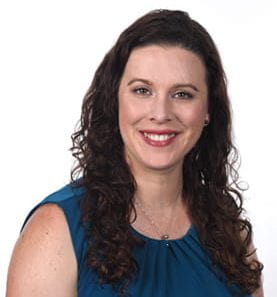
Renée Link
Professor of Teaching in Chemistry, UC Irvine
Renée Link is a Professor of Teaching in the Department of Chemistry at the University of California, Irvine (UCI) who designs, manages and teaches the organic chemistry lab courses taken by over 1,000 UCI students each year. Although her training was in organic chemistry methodology, she discovered that her true passion was in helping students learn organic chemistry. Her scholarly activity focuses on using active learning in large courses to create a more inclusive and equitable learning experience for students from all backgrounds. As a community college transfer student and first generation college graduate, Professor Link serves as a mentor for UCI graduate and undergraduate students navigating the complex world of academia.
Changing Grading Relationships through Specifications Grading: April 07, 2021
Scaling up a Specifications Grading System in a Laboratory Course with Over 1,000 Students: May 12, 2021

Stephen Mang
Assistant Professor of Teaching in Chemistry, UC Irvine
Steve Mang is an Assistant Professor of Teaching in the Chemistry department at the University of California, Irvine. He primarily teaches upper-division laboratory and upper-division writing courses. Over the last three years he has transitioned all of the classes for which he is responsible to specifications grading, and has learned a lot about what to do (and what not to do) in the process.
Using Specifications Grading to enhance student learning in writing-focused STEM courses: April 21, 2021
Managing a Token System for Specifications Grading: August 02, 2021

Kate McKnelly
Lecturer in Chemistry, Emory University
Kate McKnelly is a Lecturer Professor in the Department of Chemistry at Emory University. She earned her B.S. degree in Chemical Biology from UC Berkeley and her M.S. degree in Chemical Biology and Drug Design from the University of Leeds. Her interest in and dedication to teaching chemistry culminated in earning her Ph.D. in Chemistry at University of California, Irvine (UCI) in June 2020. While a graduate student at UCI, she fueled her passion for teaching by becoming a Pedagogical Fellow, teaching four courses as instructor of record, and collaborating on the design and implementation of specifications grading systems in the lower division organic chemistry laboratory series and an upper division “Writing for Chemists” course.
Kate has incorporated a specifications grading system as part of her redesigned lower division Macromolecules Laboratory course at Emory. Macromolecules Lab is the fourth semester course in the new Chemistry Unbound chemistry core curriculum in the Department of Chemistry. At Emory, she continues to build and refine specifications grading and to incorporate flipped classroom and active learning strategies into her courses.
Using Specifications Grading to enhance student learning in writing-focused STEM courses: April 21, 2021
Scaling up a Specifications Grading System in a Laboratory Course with Over 1K Students:
May 12, 2021
Managing a Token System for Specifications Grading: August 02, 2021

Julie Mendez
Clinical Associate Professor of Mechanical Engineering, Indiana University-Purdue University Columbus
Dr. Julie Mendez is a Clinical Associate Professor of Mechanical Engineering at Indiana University-Purdue University Columbus (IUPUC), where she teaches a variety of undergraduate courses, primarily in the areas of thermal-fluid science and design. She is a Senior Faculty Fellow of the Indiana University Mosaic Active Learning Initiative and a recipient of an Indiana University Trustees Teaching Award. Julie earned a Ph.D. in chemical engineering from Case Western Reserve University and a Bachelor of Science in chemical engineering from Rose-Hulman Institute of Technology. Her scholarly interests include active learning strategies, online course development, alternative grading practices, and Universal Design for Learning.
Implementing Specifications Grading for In-Person, Blended, and Online Teaching: May 5, 2021

Nikos Mourtos
Professor and Department Chair, Aerospace Engineering, San Jose State University
Dr. Mourtos is a professor and the Chair of the Aerospace Engineering Department at SJSU. He received his Ph.D. degree in Aeronautical and Astronautical Engineering from Stanford University. He has developed and taught more than 20 courses in aerospace, mechanical, and general engineering subjects, and more recently in leadership, complexity and systems thinking. He conducts faculty workshops on research-based course design and in particular on how to teach and assess complex 21st century process skills. His research interests encompass aircraft design, any aspect of teaching and learning in STEAM education, as well as complexity and systems thinking both in education and engineering settings. His current focus is (a) analyzing educational challenges (e.g. achievement gap, inclusion) and engineering failures (e.g. recent Boeing 737-Max accidents) using systems thinking and (b) examining the intersection of art and engineering with a view towards increasing student creativity in engineering design.
Connecting Rubrics and Outcomes with Canvas Assignments for Mastery Learning and Specifications Grading: July 26, 2021
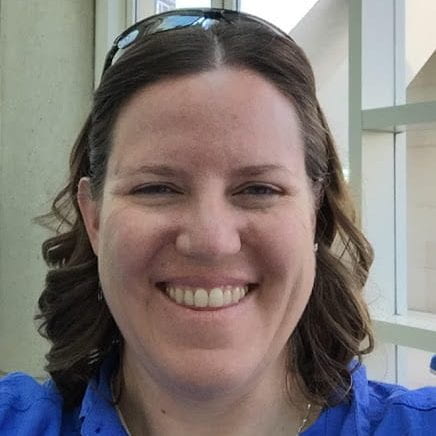
Clarissa (Rissa) Sorensen-Unruh
Chemistry and Statistics Instructor, Central New Mexico Community College
Since 2002, Clarissa (Rissa) Sorensen-Unruh has been a full-time Chemistry Instructor at Central New Mexico Community College (CNM) in Albuquerque, NM. After earning her M.S. in Statistics from the University of New Mexico (UNM) in May 2020, she is now focused on earning her Ph.D. In Learning Sciences from UNM, where she is also listed as adjunct faculty for the Chemistry and Chemical Biology Department. Her first book, Communicating Chemistry through Social Media, in which she’s both the main editor and a chapter writer, was published by ACS Books in 2018, and she contributed a chapter on her experiences with ungrading in the classroom to Susan Blum’s upcoming Ungrading: Why Rating Students Undermines Learning (and What to Do Instead) by West Virginia University Press. She regularly serves as faculty for the Digital Pedagogy Lab and in several roles in the American Chemical Society’s Division of Chemical Education. Her Twitter handle is @RissaChem and her web page is: https://clarissasorensenunruh.com/.
Ungrading: Expanding the Grading Discussion: May 19, 2021
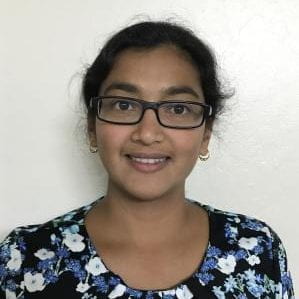
Mahima Agumbe Suresh
Assistant Professor in Computer Engineering, San Jose State University
Mahima Agumbe Suresh is an Assistant Professor at San Jose State University. She received her PhD from the Department of Computer Science and Engineering at Texas A&M University in December 2015, advised by Dr. Radu Stoleru. After her PhD, she was a postdoctoral researcher at Xerox Research Labs, India and a visiting assistant professor at Texas A&M University. Her research interests include Cyber-Physical Systems, Internet of Things, and Data Analytics for Smart City Applications. She is also interested in Augmented Reality for Safety and Education.
Connecting Rubrics and Outcomes with Canvas Assignments for Mastery Learning and Specifications Grading: July 26, 2021

Robert Talbert
Professor of Mathematics, Grand Valley State University
Robert Talbert is a Professor of Mathematics at Grand Valley State University. He holds a B.S. degree in Mathematics from Tennessee Technological University and M.S. and Ph.D. degrees in Mathematics from Vanderbilt University. In addition to teaching courses ranging from precalculus to abstract algebra, Robert is a writer and researcher on teaching and learning issues including flipped learning and mastery grading. He is the author of Flipped Learning: A Guide for Higher Education Faculty and ten research articles on teaching and learning questions. During the 2017-2018 academic year, Robert was Scholar-in-Residence at Steelcase, where he worked with the Steelcase Workspace Futures group on projects related to active learning classrooms. He is a frequent keynote speaker and workshop facilitator, working with faculty throughout the US and abroad. Robert lives with his wife, three teenage children, and four cats near the Lake Michigan shoreline in Allendale, Michigan.
Implementing Specifications Grading and Mastery Learning in STEM Teaching: April 28, 2021
